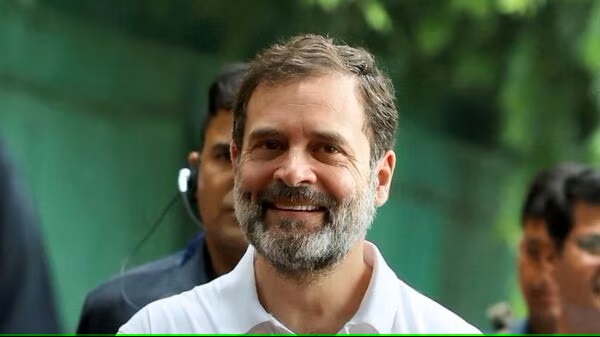The Supreme Court has scheduled to hear Rahul Gandhi’s appeal against the Gujarat high court’s ruling in a criminal defamation case on July 21.

Chief Justice of India Dhananjaya Y Chandrachud assigned the hearing date after Rahul Gandhi’s counsel, Abhishek Manu Singhvi, requested an expedited hearing.
The appeal was filed on July 15, precisely one week after the high court’s ruling dealt a setback to Rahul Gandhi’s attempt to regain his Lok Sabha membership. The high court stated that the Congress leader had “breached modesty” and that his offense involved “moral turpitude.”
In his appeal, Rahul Gandhi has urged the Supreme Court to promptly suspend his conviction in order for him to reclaim his status as a Member of Parliament. He argues that the conviction order would suppress freedom of speech, expression, thought, and statement. He states that it would contribute to the systematic and repeated weakening of democratic institutions, leading to the stifling of democracy, which would have severe repercussions on India’s political climate and future.
Gandhi’s petition also expressed concern that a political speech made during democratic political activities, which criticized both economic offenders and Narendra Modi, has been deemed an act of moral turpitude warranting severe punishment.
The petition states that such a finding is detrimental to democratic free speech in the midst of a political campaign. It is respectfully argued that such a precedent would have disastrous consequences, effectively eliminating any form of critical political dialogue or debate,
BJP leader Purnesh Modi, the complainant in this case has already filed a caveat in the Supreme Court to prevent any orders from being issued in Gandhi’s appeal without hearing his perspective.
Convicted for his comments on the “Modi” surname
On March 23, a magisterial court in Gujarat convicted Gandhi for his comments on the “Modi” surname following a criminal complaint filed by Purnesh Modi and sentenced him to two years imprisonment and resulted in his disqualification as a Member of Parliament under the Representation of People Act.
On March 24, the Lok Sabha Secretariat issued a notification declaring Gandhi disqualified as an MP from Wayanad in Kerala.
After Gandhi’s plea for a stay on his conviction was rejected by the sessions court on April 20, he decided to approach the high court. The sessions court’s order on April 20 took into account Gandhi’s position as a Member of Parliament and former chief of the country’s second-largest political party, emphasizing that he should have been more careful about his statements.
On July 7, the high court upheld this order and dismissed Gandhi’s criminal revision application seeking a stay on his conviction. Justice Hemant P Prachchhak, in his judgment, emphasized the seriousness of the conviction and its impact on a significant portion of society. He stated that it was crucial for there to be integrity in politics and that representatives of the people should have a clear background.
As a result of the high court judgment, Gandhi remains disqualified from the Lok Sabha. While he cannot be arrested as his jail term is currently suspended, only a stay on his conviction by the Supreme Court or a favourable judgment in his appeal by a sessions court can enable him to participate in the next year’s Lok Sabha elections.
Due to Gandhi’s conviction and subsequent two-year jail term, he is ineligible to serve as a Member of Parliament in either House for a period of eight years. However, this disqualification can be overturned if he manages to have the conviction overturned or suspended by a higher court. Gandhi’s legal team now faces the task of obtaining at least a stay on the conviction within the next 10 months to allow him to participate in the 2024 Lok Sabha elections.
In his appeal to the Supreme Court, Gandhi argues that the judgments of the high court and the lower courts have fundamentally mischaracterized his brief statement as being of significant gravity. He asserts that this mischaracterization has led to his exclusion from all political elective offices for an extended period of eight years. Gandhi highlights his role as a former President of the oldest political movement in the country and his continuous involvement in opposition political activities.
Gandhi further contends that if political satire is regarded as a base motive, any political speech that critically targets the government or any other political party, employing colourful language or figures of speech during a vigorous political discourse, would be deemed an act of moral turpitude thus eroding the foundations of democracy.












